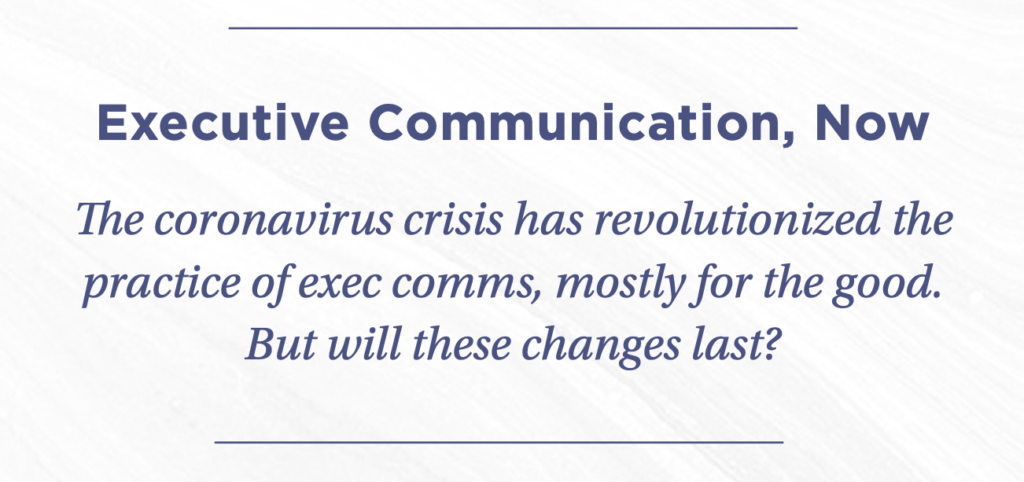The other day my teenage daughter and I were driving, and she casually implied that I’m not doing enough to change the world.
I muttered, “I’m probably doing more than you think.”
What I’m doing, Young Lady, is helping the people who help leaders lead, help leaders lead better, through better communication.
About a third of the way through that sentence, her attention began to wander, and by the end of it, she’d posted two selfies on Instagram.
In fact, most people have two questions about executive communications: 1. What is it, exactly? 2. Who cares?
This summer, the Founding Members of the Executive Communication Council set out to answer both of those questions with a survey titled, “Executive Communication, Now.” In the first comprehensive study of the exec comms business, more than 100 practitioners told us what their work is like—and how dramatically it has changed in the six months since coronavirus and in the nearly three months since George Floyd.

We learned that the changes 2020 has so rudely wrought on this obscure business of executive communication business also happen to be the ones necessary to make the business more consequential: The writers and thinkers who do exec comms are collaborating more directly with the executives they work for—the powerful leaders of corporations, nonprofits and universities. Meanwhile, those leaders are engaged in more frequent and authentic communication, on the very most substantive issues in business and society.
Download the executive summary, and see for yourself.
The question is, in the wake of this extraordinary year—however choppy that wake is—will exec comms folks be able to hold the territory they’ve taken, and maintain that sense of engagement, keeping leaders intensely communicating with their stakeholders, and thus keeping the institutions they run more responsive to society’s needs.
No pressure, but my stature in my daughter’s eyes sort of depends on it.
Leave a Reply